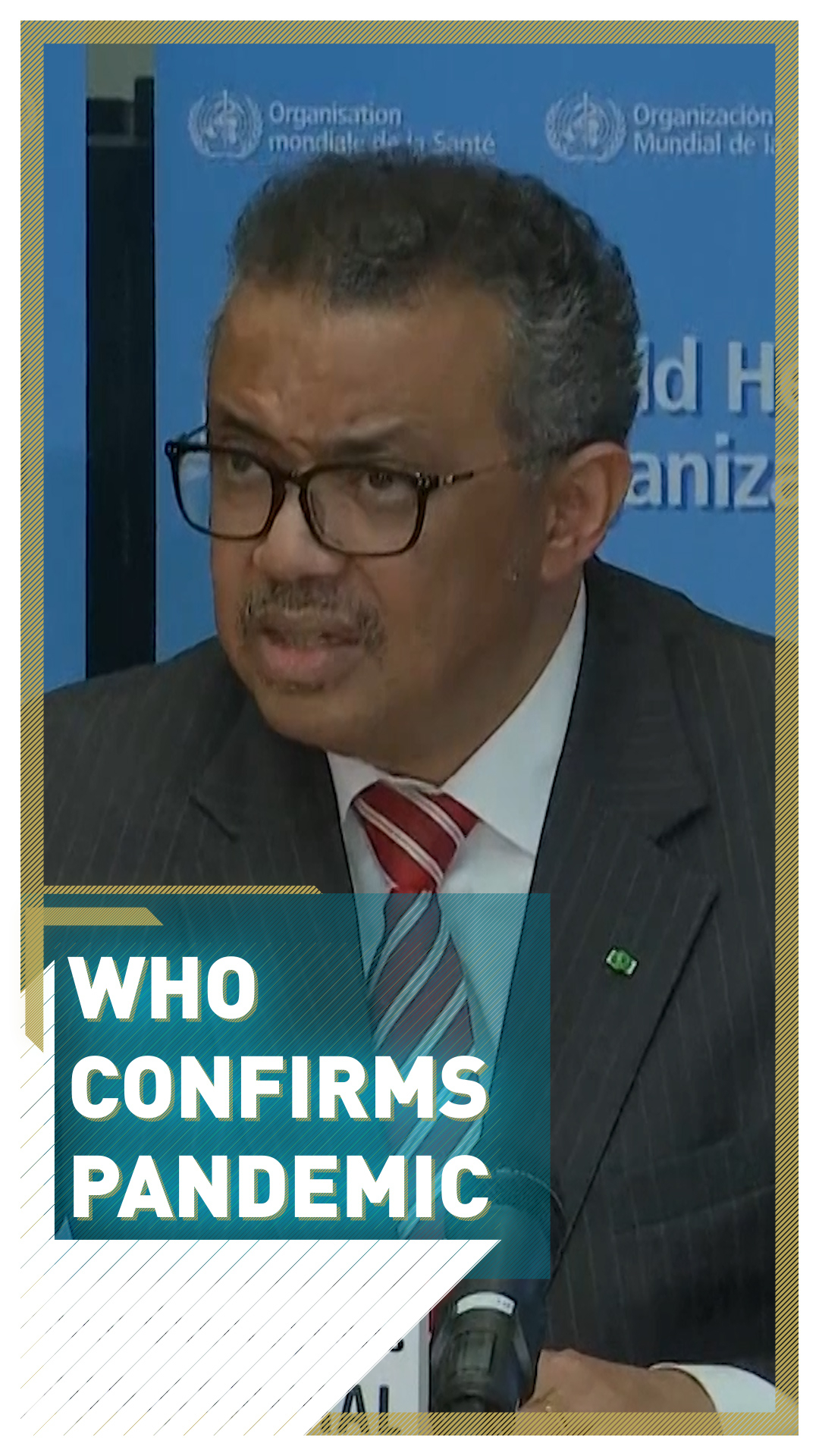01:14

The global outbreak of the COVID-19 coronavirus has been officially declared a pandemic by the World Health Organization (WHO).
Speaking in Geneva on Wednesday, WHO director-general Tedros Adhanom Ghebreyesus said he was "deeply concerned both by the alarming levels of spread and severity and by the alarming levels of inaction."
He added: "We have therefore made the assessment that COVID-19 can be characterized as a pandemic."
Ghebreyesus has previously been reluctant to use the word in reference to the novel coronavirus outbreak.
Two days ago, the WHO chief said: "The threat of a pandemic has become very real." But this is the first time he has used the term unconditionally.
Read more: What is a pandemic?
At Wednesday's daily press briefing, Ghebreyesus explained why the term was used sparingly.
"Pandemic is not a word to use lightly or carelessly. It is a word that, if misused, can cause unreasonable fear, or unjustified acceptance that the fight is over, leading to unnecessary suffering and death," Ghebreyesus explained.
Ghebreyesus added that this announcement doesn't change WHO's assessment of the threat posed by COVID-19, nor does it change what the body is doing or what countries should be doing.
"We have never before seen a pandemic sparked by a coronavirus. And we have never before seen a pandemic that can be controlled at the same time. WHO has been in full response mode since we were notified of the first cases," Ghebreyesus said.

WHO director-general Tedros Adhanom Ghebreyesus had been reluctant to call the outbreak a pandemic. /Fabrice Coffrini/AFP
WHO director-general Tedros Adhanom Ghebreyesus had been reluctant to call the outbreak a pandemic. /Fabrice Coffrini/AFP
The WHO has been calling on countries to "take urgent and aggressive action" to fight and contain the outbreak, and praised China's control measures, saying other countries could also adopt these measures.
"Eighty one countries have not reported any COVID-19 cases, and 57 countries have reported 10 cases or less. We cannot say this loudly enough, or clearly enough, or often enough: all countries can still change the course of this pandemic," Ghebreyesus noted, adding that "several countries" have shown the virus can be controlled and suppressed.
Ghebreyesus also took the opportunity to remind all countries of their responsibility in building a comprehensive strategy to prevent infections, save lives and minimize the impact of the virus.
He reiterated that countries must strike a fine balance between "protecting health, minimizing economic and social disruption and respecting human rights."
"I remind all countries that we are calling on you to: activate and scale up your emergency response mechanisms; communicate with your people about the risks and how they can protect themselves; find, isolate, test and treat every COVID-19 case and trace every contact; ready your hospitals and protect and train your health workers," Ghebreyesus summed up.
Part of the reluctance of the WHO in naming the COVID-19 outbreak a pandemic, up until today, was out of fear of inflaming worldwide worry.
The organization had previously warned of using the term carelessly, saying there was a significant risk of it amplifying unnecessary and unjustified fear and stigma and paralyzing systems. As well as signaling that the world can no longer contain the virus, which the body maintained was untrue.
In Wednesday's briefing, Ghebreyesus reiterated the need to avoid oversaturating the term, suggesting other "p-words" to focus on instead.
"Let me give you some other words that matter much more and that are much more actionable: prevention, preparedness, public health, political leadership, and, most of all, people," Ghebreyesus said.
Source(s): Reuters